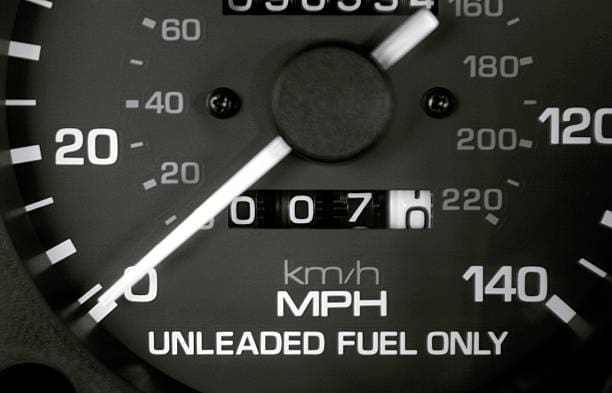What Is a Mileage Rollback Tool is a fraudulent practice that involves altering the odometer reading of a vehicle to display fewer miles than the car has traveled. This deceptive tactic is often used to increase the resale value of a vehicle by making it appear less used than it truly is. A mileage rollback tool, also known as an odometer correction tool, is a device or software used to carry out this manipulation. While the use of such tools is illegal in many countries, they continue to be a significant issue in the automobile industry, with serious consequences for consumers and the market at large.
Understanding the Mileage Rollback Tool
Table of Contents
Toggle
What is a Mileage Rollback Tool?
A mileage rollback tool is a specialized device or software that allows users to alter the digital or mechanical odometer readings on a vehicle. These tools can reset or reduce the recorded mileage, effectively rolling back the number displayed on the odometer. The rollback can be performed on a variety of vehicles, including cars, trucks, and motorcycles, and can be used on both digital and analog odometers.
How Does a Mileage Rollback Tool Work?
Mileage rollback tools work by accessing the vehicle’s electronic control unit (ECU) or directly manipulating the mechanical components of the odometer. For digital odometers, the tool connects to the ECU via the onboard diagnostic port (OBD-II) or another interface, allowing the user to modify the stored mileage data. In the case of mechanical odometers, the tool physically manipulates the gears or components that register mileage, reducing the displayed figure.
Types of Mileage Rollback Tools
- Digital Rollback Tools: These tools are designed for vehicles with digital odometers. They typically use software that interfaces with the car’s ECU, allowing for precise control over the displayed mileage.
- Mechanical Rollback Tools: These are used for older vehicles with analog odometers. They work by physically altering the components within the odometer to change the displayed mileage.
- Hybrid Tools: Some tools are capable of handling both digital and mechanical odometers, providing versatility for users dealing with a variety of vehicle types.
The Impact of Mileage Rollback in the Automobile Industry
Consumer Deception and Financial Loss
The most immediate impact of mileage rollback is consumer deception. Buyers are misled into purchasing vehicles that appear to be in better condition than they actually are. This can lead to significant financial loss as buyers may pay more than the vehicle is worth based on the falsified mileage. Additionally, the true condition of the vehicle might result in higher maintenance costs and unexpected repairs, further increasing the financial burden on the buyer.
Safety Concerns
Vehicles with rolled-back mileage may have skipped essential maintenance milestones, making them potentially unsafe to drive. Regular maintenance schedules are often based on mileage, so a vehicle with falsified mileage might miss critical services like oil changes, brake inspections, and tire rotations. This can lead to mechanical failures or accidents, posing a serious risk to drivers, passengers, and other road users.
Market Distortion
Mileage rollback distorts the used car market by inflating the value of vehicles with altered odometers. This creates an unfair market where sellers of legitimate low-mileage vehicles face competition from those selling fraudulently modified cars. The prevalence of mileage rollback can undermine consumer confidence in the used car market, leading to a decrease in overall market activity and a potential decline in vehicle values.
Legal and Regulatory Issues
In many countries, mileage rollback is considered fraud and is punishable by law. However, the enforcement of these laws can be challenging, especially with the availability of sophisticated rollback tools that leave little evidence of tampering. Regulatory bodies are continuously working to improve detection methods and enforce penalties, but the practice remains a persistent issue in the automobile industry.
Why Mileage Data is Crucial in the Automobile Industry
Vehicle Valuation
Mileage is a critical factor in determining a vehicle’s value. Generally, lower mileage indicates less wear and tear, leading to a higher resale value. Accurate mileage data ensures that vehicles are fairly priced in the market, benefiting both buyers and sellers. When mileage data is manipulated, it distorts the vehicle’s value, leading to unfair transactions and potential financial loss.
Maintenance and Repair
Accurate mileage data is essential for maintaining a vehicle’s health. Many maintenance schedules are based on mileage intervals, such as oil changes, timing belt replacements, and tire rotations. If the mileage is rolled back, the vehicle may miss these crucial maintenance points, leading to mechanical issues and safety hazards. Reliable mileage data helps ensure that vehicles receive timely maintenance, extending their lifespan and maintaining safety standards.
Warranty Coverage
Vehicle warranties often depend on mileage. Manufacturers and dealers typically offer warranties that cover repairs and services up to a certain number of miles. If a vehicle’s mileage has been rolled back, it might falsely appear to be within the warranty coverage period, leading to fraudulent claims and potential disputes between consumers and warranty providers. Accurate mileage data is essential for upholding the integrity of warranty agreements.
Legal Compliance
In many regions, accurate mileage reporting is a legal requirement. For instance, in the United States, the Federal Odometer Act makes it illegal to alter or tamper with a vehicle’s odometer with the intent to change the number of miles indicated. Vehicles sold with incorrect mileage data can lead to legal consequences for sellers, including fines, penalties, and potential lawsuits. Accurate mileage data helps ensure compliance with legal standards, protecting both consumers and sellers from legal risks.
Detection and Prevention of Mileage Rollback
Odometer Inspection
One of the primary methods for detecting mileage rollback is a thorough odometer inspection. Mechanics and vehicle inspectors can look for signs of tampering, such as inconsistencies in the odometer’s appearance, unusual wear on the dashboard, or evidence of tampering with the mechanical components. However, modern digital odometers are more challenging to inspect, making this method less effective for newer vehicles.
Vehicle History Reports
Vehicle history reports are a valuable tool for detecting mileage rollback. These reports compile data from various sources, including service records, registration renewals, and previous sales, to provide a comprehensive view of a vehicle’s history. Any discrepancies in recorded mileage can indicate potential rollback. Buyers are encouraged to obtain a vehicle history report before purchasing a used car to ensure that the mileage is accurate.
Mileage Verification Services
Several third-party services specialize in mileage verification. These services use advanced algorithms and databases to cross-check mileage data from multiple sources, helping to identify any inconsistencies. Some services also offer mileage certification, providing buyers with confidence that the vehicle’s odometer reading is accurate.
Legal and Regulatory Measures
Governments and regulatory bodies are continuously working to combat mileage rollback through stricter enforcement of existing laws and the introduction of new regulations. In some regions, mandatory mileage reporting during annual inspections and registration renewals helps create a documented trail of mileage data, making it more difficult for fraudsters to alter odometer readings without detection.
Technological Solutions
As vehicles become more connected, manufacturers are incorporating advanced technologies to prevent mileage rollback. For example, some modern vehicles store mileage data in multiple locations, including the ECU, infotainment system, and telematics units. This makes it more challenging to alter the mileage without leaving a trace. Additionally, blockchain technology is being explored as a way to securely record and verify vehicle data, including mileage, creating an immutable record that cannot be tampered with.
The Future of Mileage Data in the Automobile Industry

Connected Vehicles and Telemetry
The rise of connected vehicles and telemetry systems is likely to play a significant role in combating mileage rollback in the future. These systems continuously collect and transmit vehicle data, including mileage, to centralized databases. This real-time tracking makes it increasingly difficult for fraudsters to alter mileage without detection. As more vehicles become connected, the prevalence of mileage rollback is expected to decrease.
Blockchain Technology
Blockchain technology offers a promising solution for securing vehicle data, including mileage. By recording mileage data on a blockchain, an immutable and transparent record is created, which cannot be altered or deleted. This technology could be used to verify mileage during vehicle transactions, ensuring that buyers and sellers have access to accurate and trustworthy data. Several pilot projects are already exploring the use of blockchain in the automotive industry, and widespread adoption could significantly reduce the incidence of mileage rollback.
Stricter Regulations and Penalties
As awareness of mileage rollback grows, governments are likely to implement stricter regulations and penalties to deter this practice. This could include harsher fines, mandatory mileage reporting, and increased scrutiny of used vehicle transactions. Enhanced enforcement of existing laws, combined with new legislative measures, will be essential in protecting consumers and maintaining the integrity of the used car market.
Conclusion
Mileage rollback remains a significant challenge in the automobile industry, with far-reaching implications for consumers, sellers, and the market as a whole. The use of mileage rollback tools to alter odometer readings not only deceives buyers but also poses safety risks and legal challenges. However, with advancements in technology, increased regulatory efforts, and greater awareness among consumers, the industry is making strides toward reducing the prevalence of this fraudulent practice. Accurate mileage data is crucial for ensuring fair transactions, maintaining vehicle safety, and upholding legal standards. As the automobile industry continues to evolve, the fight against mileage rollback will remain a critical focus, ensuring that all stakeholders can trust the information presented in vehicle transactions.



